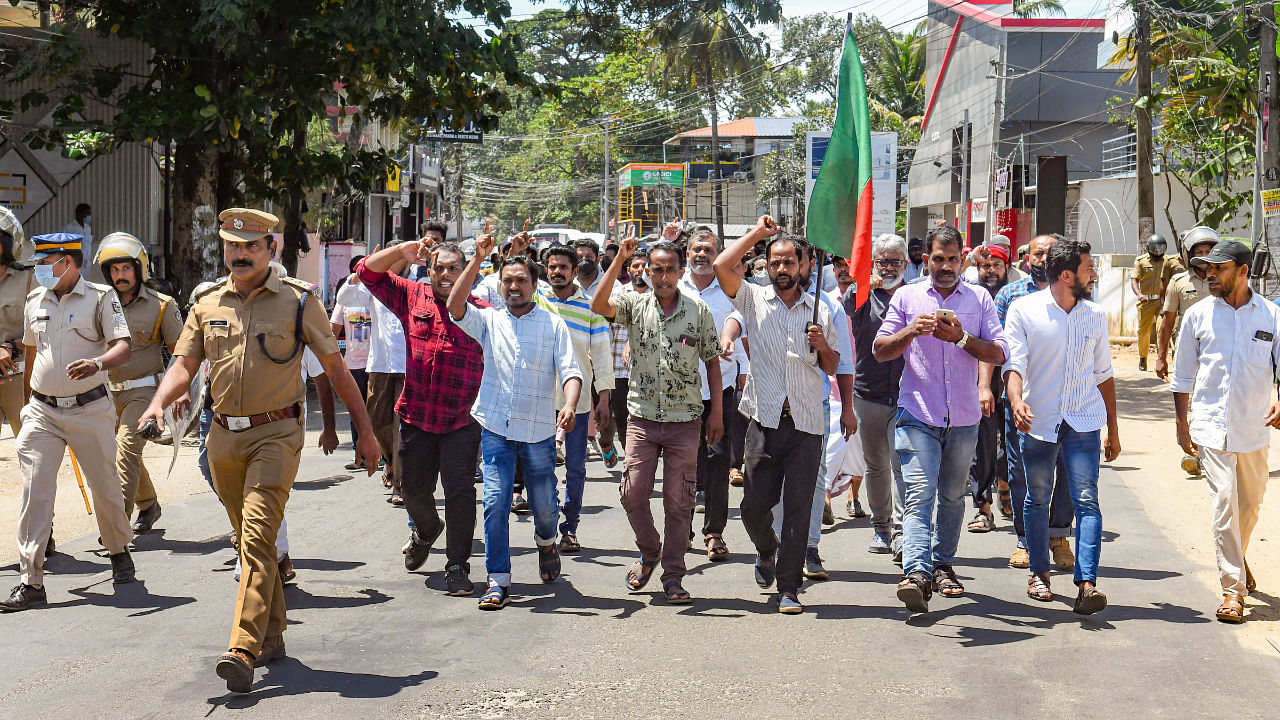
The evolution of Popular Front of India began in Kozhikode district’s Nadapuram area way back in 1980s with the formation of a local group of Muslim extremists. In the backdrop of the violent clashes between Communist Party of India (Marxist) and Indian Union Muslim League, the extremists’ group was the seedling that led to the formation of National Development Front (NDF), which later evolved into what is today the PFI.
Even though Kerala is widely considered a secular state, it became a fertile ground for PFI’s growth—the state’s strong Gulf connections that made funding easier and the appeasement politics of the mainstream parties such as the CPM and the Congress were major contributing factors.
According to political commentator M N Karassery, “Be it the minority communalism or the majority communalism, both the CPM and Congress are equally responsible for their growth in Kerala.”
While the NDF was formally formed in Kerala in 1993 after the Babri Masjid demolition, there were reports that during the CPM-IUML tensions in Nadapauram—which is geographically quite close to CPM’s stronghold, Kannur—a group of Islamic extremists formed an informal group called NDF: Nadapuram Defence Force.
The objective of this group was reportedly to resist the attack towards the Muslim community in the late 1980s. This group was also said to have been absorbed into the mainstream NDF.
Karassery said although he wasn’t aware of the Nadapuram Defence Force, he had heard speculations about the National Development Front being referred to as National Defence Force by the cadres.
Today, the PFI organisation mainly lures youngsters towards radicalization by pumping in the money. Its “catch them young” philosophy seemed to have worked, as exhibited a few months ago in a video of a pre-teen boy chanting inflammatory slogans during a PFI march in the state.
The video was shared and reshared for its shock value, and forced Kerala High Court to intervene in the matter.
From the beginning—when it was NDF—the extremists group members were reportedly involved in a series of cold-blooded murders, including the 2003 Marad massacre in Kozhikode.
Later, as a part of expanding beyond Kerala, the NDF became PFI in 2006 by merging with Karnataka Forum for Dignity. In 2007, Manitha Neethi Pasarai from Tamil Nadu merged as well into PFI.
It was considered as a reorganisation of the Student Islamic Movement of India (SIMI) that was banned in 2001.
According to sources in the police and intelligence agencies, major avenue of money for the outfit is the Gulf countries, along with Muslim businessmen. They allegedly used to collect money from Muslim community members under the pretext of charity and protecting the religion.
Enforcement Directorate’s recent crackdown on PFI and its affiliates like Rehab India Foundation, which operated under the cover of charity, established how the organisations were sourcing funds. There were also reports that the increasing smuggling activities in Kerala, mainly gold, via Kozhikode international airport, was also a source of funds for the extremist outfit.
The PFI was also said to be involved in a series of killings and heinous attacks including the 2010 chopping of hands of Professor T J Joseph, who was accused of blasphemy. Reports of youth radicalization and recruitment to foreign extremist groups such as the Islamic State, through these, also emerged.
While political leadership in the state—be in the ruling CPM or the opposition Congress—often maintains that it was not in favour of banning the outfit, Kerala police have frequently conveyed to the Centre the organization’s terrorist activities and highlighted the need for “stringent measures” against it.
Even Union minister Kiren Rijiju had stated that the Kerala police chief pressed for a ban on PFI at a 2018 DGPs’ conference. But the CPM government refused the claim.